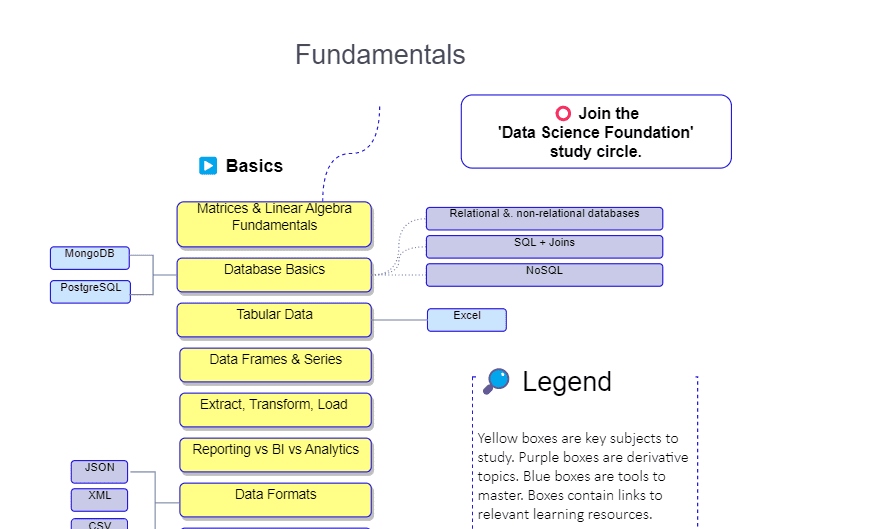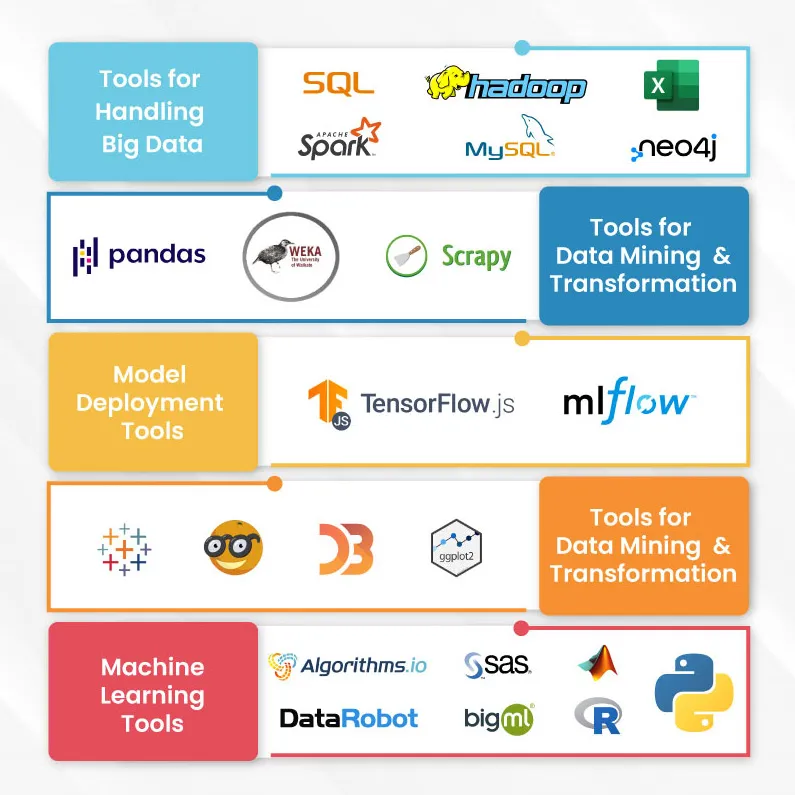
Bing Image Creator
If you don’t have a background in computer science, you know the amount of work that goes into getting a job in the world of data science. Data science opportunities require a lot of people, but since data science is so new to the world (it hasn’t been over a decade!), there are very few people who are organically qualified to be data scientists according to the norms of the corporate world.
This industry screams growth and opportunity and that is one of the main reasons why someone would want to transition into the world of data science even if they come from a very different background.
Note: I am one of the few who know that Data Science can work for someone, not with a computer science background and I hope this article helps you find the guidance you need to jumpstart your journey.


In this article, we’ll go over how you should approach data science as a career transition based on three different segments:
- for someone who has never touched on anything closely related to data science in college.
- for someone of a non-computer science experience but with a couple of relevant data science related topics And who wants to be a data scientist, why not?
For someone who has been working in an industry for a long time but now wants to change to the fascinating and daunting world of data science.
Note: The opinions in this article are my own, feel free to have your own opinion or approach towards the transition. Wish you all the best.
Let’s get into it.
Stage I: you are not very related to data science, but you want to get into it.
Well, in this case, I would say that the only effort you will make is mental and it needs a lot of patience. There is no doubt that Data Science is a very technical subject and involves a lot of numbers.
P.S. Try to check this out first, to identify which is the path to follow to succeed in Data Science. Then you can go ahead and understand the things to keep in mind to speed up your journey!


Things to keep in mind in this case:
- Data Science is like any other subject, you can always start learning it when you find the time.
- It’s always early enough, never too late to start.
- Data Science is a combination of computer science, statistics, college level math, lots of logical thinking and programming languages with other tools you can use.
- Chart your skill in each of the domains (or the particular one in which you want to be a professional) and continue to learn more about each one.
- If you want to get into analytics, push your knowledge of statistics and also data cleaning etc. (learn Excel as much as you can, it’s a godsend for analysis on small data sets and the best tool to start with)
- For Data Viz, try to learn Tableau, PowerBI, etc. but, at the same time, understand how visualizations work and how you can create better images and dashboards.
- Mainly for the first 2 months of your apprenticeship, focus on learning these in the same order: Excel, SQL, Tableau, and if time allows, Python basics.


With this, you can move on to stage II and continue learning from there.
Note: It will take time if you are new to Data Science, so just be patient and trust the process. It will work!
Stage II: You have been related to some topics in Data Science but you have not been fully involved.
This was a stage similar to mine and I can tell you that it costs a lot to study Data Science. It depends on a lot of factors, as you’ll see eventually, but it’s not very difficult with the way the world has been opening doors for open source learning and offering knowledge to anyone who wants it (even if they come from a non-world). CS). background).
Things to keep in mind in this case:
- Data science is a difficult field if you try to look at it as a whole. Just start seeing each component you want to focus on as pieces of the big puzzle, and you’ll be fine.
- If you want to dwell on the Data Viz side of Data Science, focus on understanding how dashboards and data connections work and learn how to tell data stories.
- For someone wanting to get into machine learning try to understand how to work with Python or R, if you go for Python – learn libraries like NumPy, Pandas, Scikit Learn, SciPy, Matplotlib and Seaborn.
- Understand the theoretical concept behind ML to also make more sense of its algorithms. It should take time, but understanding the process is more important than coding a high-grade ML algorithm.
- If you want to boost your analytical side, learn inferential statistics and understand how data can be used to create data-driven solutions. Learn how to work with data that is unstructured and clean as many data sets as possible.
- Go beyond the normal CRUD commands in SQL to fully understand how JOINS work and how to work with MySQL/PostgreSQL. If you want to jumpstart it with Excel, learn how to use the data analysis tools suite and how to make macros.
- Understand how time series data works and learn how to extract data from sources and make time series forecasts to fuel your learning.


Most of the time, you will be one of the masses learning a lot of tools and mastering everything at an intermediate level.
I highly recommend that you find your niche and move into it. With the amount of knowledge and competition that exists in the world of data science, try to find your niche and make sure you find your mark on the competition with your unique skills.
Stage III: You are already a professional in an industry but you want to start in Data Science now!
There are people I know who have been in incredible positions in their lives before they decided they want to be a part of data science. It’s natural to want to change careers after a long time working in a particular industry and there are a few things I’ve gotten from people I know who have been in a similar position that can help you on this one.
Things to keep in mind in this case:
- Once you are a professional in a particular industry, it may be due to a change in life choices or a demand to improve your skills, which leads you to data science.
- In any case, management roles in data science would be happier to have someone with a lot of corporate exposure to the industry.
- Improving data science skills with your existing knowledge in an industry can be one of the best things to happen with your career transition. Data science, while playing with computer science and also with tools and techniques, is largely based on domain knowledge.
- With enough domain knowledge, you can be a data scientist in your field harnessing the power of data for more of what’s already being done.
- Industry-specific metrics and KPIs can be further developed and automated with Data Science and can also open new doors for you.
- With additional knowledge of data science tools in your arsenal, you can become a trainer in your field and help budding data scientists. The possibilities are limitless.
- The tools and skills to learn in this stage are the same as those being done in Stage I and Stage II mentioned earlier in this article.
In any case, it’s best to learn data science and stick to your field of profession because of the way the world is transitioning to data science today. Everything you do can and does have data involved, and using it in your decision making will only make your decisions that much better.
It’s hard to transition into the world of data science not because it’s hard to get a job, but because there are so many people competing for it. The opportunities are seen by everyone and people know that -data is the future- and so is data science.
For anyone who already has immediate experience in Data Science, stay tuned, I will have another part of this article where we will discuss how you can go from professional to Data Science expert.
Yash Gupta is a data science enthusiast and business analyst, freelance technical writer, and blogger at Medium.com. He is interested in sharing data science knowledge with a broader audience in an easy to consume way. He wishes to share his knowledge with everyone who enjoys data as much as he does. He tries to learn something new every day and loves to guide budding data enthusiasts on their journey.
Original. Reposted with permission.
 NEWSLETTER
NEWSLETTER





